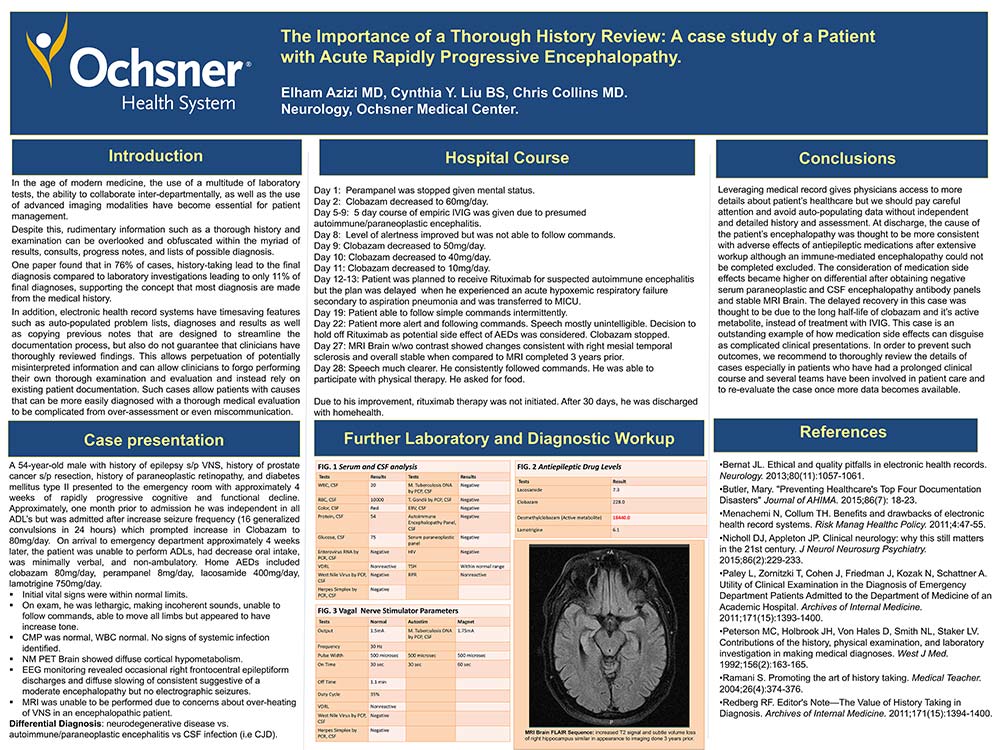The Importance of a Thorough History Review: A case study of a Patient with Acute Rapidly Progressive Encephalopathy.
This poster is part of a Virtual Poster Session, hosted by the Ochsner Continuing Medical Education. We encourage you to ask questions and engage in discussion on this poster! Authors will respond to comments between May 25- June 5, 2020.
Presenters
Elham Azizi MD, Cynthia Y. Liu BS, Chris Collins MD.
Poster Description
In the age of modern medicine, the use of a multitude of laboratory tests, the ability to collaborate inter-departmentally, as well as the use of advanced imaging modalities have become essential for patient management.
Despite this, rudimentary information such as a thorough history and examination can be overlooked and obfuscated within the myriad of results, consults, progress notes, and lists of possible diagnosis.
One paper found that in 76% of cases, history-taking lead to the final diagnosis compared to laboratory investigations leading to only 11% of final diagnoses, supporting the concept that most diagnosis are made from the medical history.
Poster
(Click here to access this presentation as a PDF.)

This poster underscores the idea that clinical acumen is still very important in managing patients, perhaps even more that all the labs and imaging we have. Perhaps, the patient may also be slow metabolizer of clobazam although the dose of 80 mg per day is really high. If he were a slow metabolizer then in the future, one may be more reluctant to use Epidiolex as Epidiolex may increase clobazam levels more.
Great presentation. Did the concern for autoimmune encephalitis come from the chart history of paraneoplastic syndrome? Was that a diagnosis of paraneoplastic retinopathy based on serology or a clinical one? One key history feature I did not see highlighted is the clobazam dose prior to his increase to 80mg/day. Do we know this information?
Excellent!